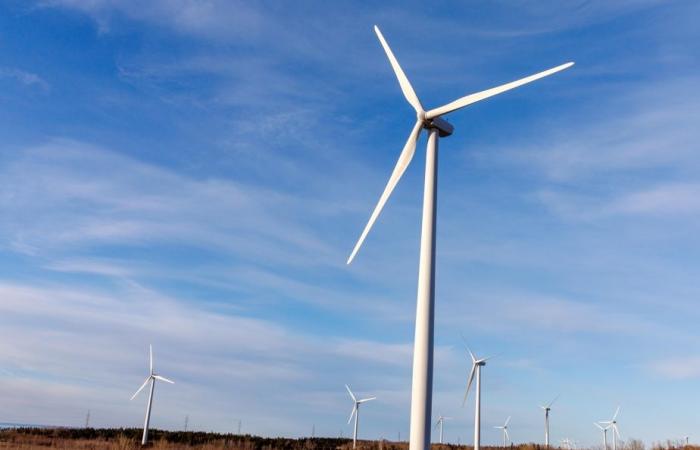Every Thursday, we return to a significant subject in the world, thanks to the perspective and expertise of a researcher from the Center for International Studies and Research of the University of Montreal or the Raoul-Dandurand Chair of the University of Quebec in Montreal.
Posted at 1:23 a.m.
Updated at 11:00 a.m.
Yvan Cliche
Fellow and energy specialist at the Center for International Studies and Research of the University of Montreal (CERIUM)
On June 19, Radio-Canada unveiled Hydro-Québec’s project to build “huge onshore wind farms, among the largest on the planet”, with lines and substations to transport this energy to consumption centers. .
Obstacles to the success of the energy transition have been raised in recent years, including regulatory delays for new equipment and social acceptability, particularly among indigenous communities.
But let’s not lose sight of an essential aspect that would otherwise risk derailing support for the transition that our leaders describe as the greatest challenge of our time: rigor in the management of projects that will be deployed throughout Quebec.
A pharaonic challenge
Hydro-Québec plans to invest nearly $200 billion by 2035 to increase electricity production, transmit it to customers, strengthen the network for quality of service, improve the energy performance of buildings, electrify transportation and offer customers a multitude of energy efficiency programs.
The challenge is enormous. We must convert no less than 50% of our energy mix, which still relies on fossil sources, with clean technologies, such as hydraulic, wind, solar or batteries.
To achieve this, it will be necessary to carefully plan and execute several large-budget projects that will mobilize 20% of the province’s construction workforce, according to Hydro-Québec.
Planning these projects and managing them within the budgetary envelopes will be crucial. However, in recent years, projects, including those in the energy sector, have not always been completed within the planned costs and schedules.
The Site C hydroelectric complex in British Columbia (1,100 megawatts), which should be commissioned this year, was expected to cost $8 billion. So far, it has cost double, more than 16 billion, a year behind schedule.
At the other end of Canada, in Newfoundland, the Muskrat Falls hydroelectric complex (824 megawatts) was initially planned at 7.4 billion. It was completed in 2023 at a cost of nearly 13 billion. The Newfoundland government even had to form a commission of inquiry to shed light on these cost overruns.
Avoiding “optimism bias”
Published in 2020, the report cites the testimony of Bent Flyvbjerg, an expert in megaprojects1. In his analysis, this former teacher at Oxford emphasizes that the cost and schedule estimates are systematically too low.
He notes what he calls an “optimism bias” that leads engineers, architects, business people, unions and politicians who support a big investment to overestimate its benefits and greatly underestimate the difficulties. .
The researcher’s judgment is clear: generally speaking, nine out of ten megaprojects suffer cost and schedule overruns.2.
Cost overruns of up to 50% are common and overruns of more than 50% are not uncommon. They are manifested as much in private sector initiatives as in those of the public sector.
At the dawn of its transition, it is imperative that Quebec be aware of this risk before launching such major projects. In particular, it will be necessary to train a sufficient number of professionals in project management.
More expensive than expected electrical equipment will have a direct impact on electricity prices, which are already expected to rise due to the many new assets planned to decarbonize our economy.
This is a relevant issue to raise during the consultation on the Integrated Energy Resources Management Program planned by the government this fall.
1. View the report Muskrat Falls : A Misguided Project (in English)
2. Read “Introduction: The Iron Law of Megaproject Management”, by Bent Flyvbjerg (in English)
What do you think ? Participate in the dialogue







